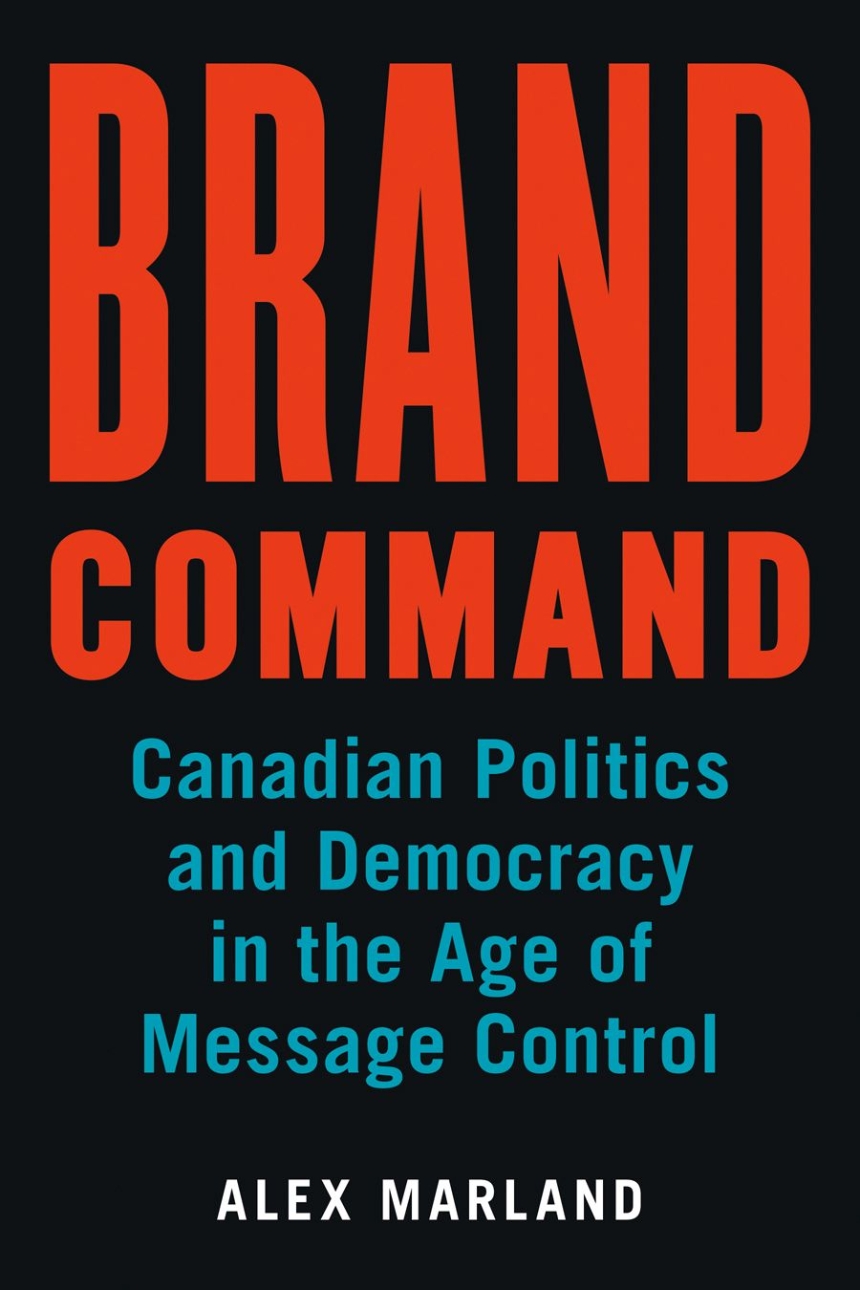University of British Columbia Press
Brand Command
Canadian Politics and Democracy in the Age of Message Control
Distributed for University of British Columbia Press
Brand Command
Canadian Politics and Democracy in the Age of Message Control
The pursuit of political power is strategic as never before. Ministers, MPs, and candidates parrot the same catchphrases. The public service has become politicized. And decision making is increasingly centralized in the Prime Minister’s Office. What is happening to our democracy? To get to the bottom of this, Alex Marland reviewed internal political party files, media reports, and documents obtained through access to information requests, and interviewed Ottawa insiders. He discovered that in the face of rapid changes in communication technology, the infusion of corporate marketing strategies has instilled a culture of centralized political control. At the core of the strategy is brand control; at stake is democracy as we know it.
Table of Contents
Preface: Branding, Message Control, and Sunny Ways
Identifies what went wrong for Stephen Harper and the Conservative Party in the 2015 election campaign, which sets up a provocative summary of communications practices in the early days of the new Liberal government led by Prime Minister Justin Trudeau.
1 The Centralization of Communications in Government and Politics
Sets the scene by establishing that communications practices are contributing to centralized power in the centre of parliamentary government. A hypothesis is introduced that everything political passes through a branding “lens.”
2 Marketing and Branding in Politics
Summarizes the advent of political marketing and branding, and identifies party discipline and central agencies as enablers.
3 The Tumultuous Digital Media Environment
Establishes that politics, government and the parliamentary press gallery have been transformed by digital media. Discusses concepts such as media logic, agenda setting, framing, information subsidies, celebritization, pseudo-scandal, and political advertising.
4 Public Sector Brands
Continues to lay a theoretical foundation by conceptualizing types of brands in the political marketplace. Features a case study that treats Justin Trudeau as a brand line extension of his father Pierre, the transformative Canadian prime minister.
5 Communications Simplicity and Political Marketing
Argues that research is informing the simplification and precision of communications messaging in politics. Presents evidence of ways that political marketing is practiced.
6 Brand Discipline and Debranding
Advances an argument that political elites are responding to changing communications technology with intensified media management that requires message consistency. This includes a penchant for negativity, as strategists attempt to damage

